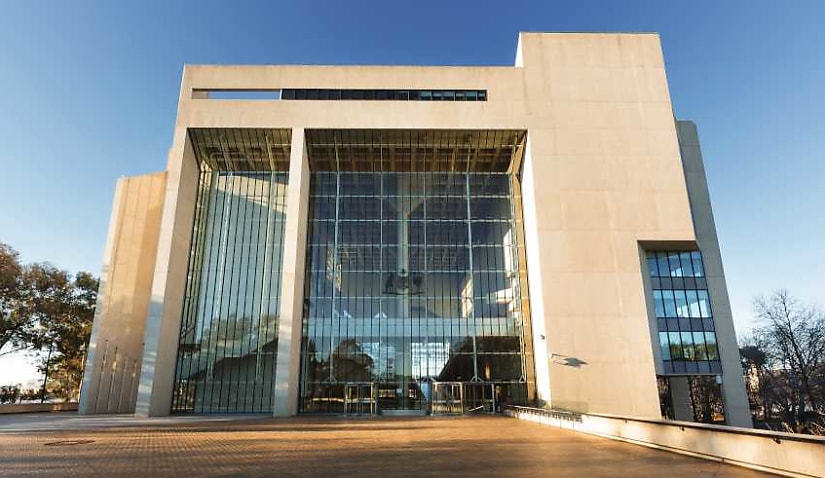Powered by MOMENTUM MEDIA
Arbitration in Australia hangs in the balance. If the High Court opts not to enforce an arbitral award against Spain, in proceedings commencing today, the “clear advantages” of Australia as a venue for arbitration “will be lessened”.

Starting today (9 November), High Court proceedings will commence in Kingdom of Spain v Infrastructure Services Luxembourg S.à.r.l. & Anor, an appeal by the European nation against a decision by the Full Court of the Federal Court, which — according to the Resolution Institute — can and will have implications for Australia’s international standing as an arbitration-friendly state.
The Full Court case saw Infrastructure Services Luxembourg (ISL) undertake an arbitration against Spain in relation to a €139 million investment it had made in solar power, which was made based on the existence of a Spanish subsidy program, that Spain later withdrew.
ISL alleged that the withdrawal of the subsidy was a breach of the Energy Charter Treaty (ECT) between Spain and other contracting states.
The ECT contains an arbitration agreement by which Spain had agreed to arbitration with investing parties under the Convention on the Settlement of Investment Disputes between States and Nationals of Other States (ICSID).
ICSID is a treaty to which both Australia and Spain are parties. It provides a mechanism for the conduct of international arbitrations and affords powers of recognition and enforcement of awards in states that have agreed to it.
An ICSID arbitration took place in 2018 over the dispute, and the arbitrators awarded ISL a sum of over €101 million.
After obtaining the award, ISL commenced proceedings in the Federal Court, to have the arbitration award recognised as if it were a judgment of the court, under the International Arbitration Act 1974.
Australia was chosen, presumably, because Spain has assets here and because Australia is recognised as an arbitration-friendly jurisdiction, Resolution Institute mused in a statement.
Spain appealed the decision to the Full Court on the basis that the terms “enforcement” and “execution”, as stated in the ICSID Convention, have different meanings in Spanish and English.
Spain argues that the ambiguity in the words means a waiver of immunity cannot arise because they are not sufficiently clear.
The High Court case will be, Resolution Institute said, one of the first courts outside the European Union to consider the enforceability of ICSID awards against a nation-state — whilst being a jurisdiction with well-established domestic rules that give effect to sovereign immunity.
Consequences
The outcome of the case will determine Australia’s standing, in being regarded as a state that either recognises or does not recognise the enforceability of international arbitration verdicts.
In conversation with Lawyers Weekly, Toby Shnookal KC — an arbitrator and board member of the Resolution Institute — said that the High Court’s ultimate decision in this matter would be significant, given the direct flow-on effects of that decision.
On the one hand, if the appeal from Spain is dismissed, it is likely that other arbitral awards against the European nation under the ECT will be enforced here, he said.
“Spain is the subject of a number of arbitral awards that have been made against it for breach of the Energy Charter Agreement (ECT). It provided incentives to investment in renewals and then, after investments had been made by EU resident companies that relied on those incentives being ongoing, reduced the incentives and so the profitability of the investments,” Mr Shnookal detailed.
“Because these awards are difficult to enforce in the EU, enforcement proceedings have been brought in Australia, [which is] a signatory to the ICSID.”
On the other hand, Mr Shnookal went on, if the High Court finds that the award is not enforceable because Spain’s agreement to ICSID — or, perhaps, the ECT — does not amount to it submitting to the jurisdiction of Australian courts, and losing the immunity from suit conference by the Foreign States Immunities Act 1985, then “this will likely mean any foreign awards against any nation-state will be difficult, if not impossible, to enforce in Australia”.
“That would affect Australia’s reputation as supportive of arbitration as a means of resolving international disputes,” he warned.
Australia’s reputation
When asked about the potential implications for Australia for the upholding of the appeal, Mr Shnookal noted that arbitration is “booming” in the Asia-Pacific region, with Australia being boosted as a “strong competitor” to Singapore and Hong Kong in the legal services market associated with international arbitrations.
“There are clear advantages to conducting arbitrations in Australia, and one of them is the positive support that our courts give,” he explained.
However, he warned, “the attractiveness of Australia as a venue for arbitration will be lessened if the immunity given by the Foreign States Immunities Act is found not to be extinguished by a nation state entering into a treaty that expressly provides for the enforcement and recognition of arbitration awards made under it”.
Case details
The case, to be heard from today in the High Court of Australia, is Kingdom of Spain v Infrastructure Services Luxembourg S.à.r.l. & Anor (Case S43/2022).
The Kingdom of Spain is being represented by Dr Christopher Ward SC with Philip Santucci, who are being instructed by K&L Gates.
The respondents are represented by Bret Walker SC with Justin Hogan-Doran SC, and Chester Brown, who are instructed by Norton Rose Fulbright.
We're evolving — and so should your insights. Heads up — Lawyers Weekly is going premium from 1 May for just $5 a month. Stay informed without missing a beat. More information coming soon.